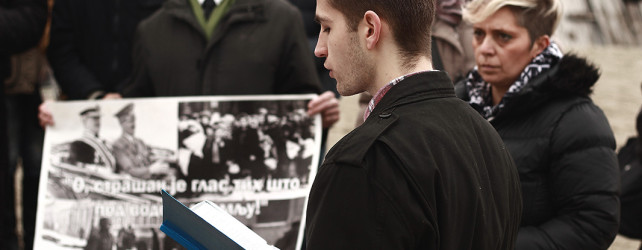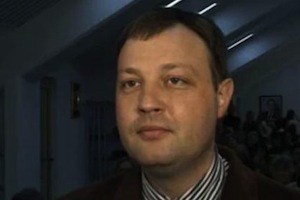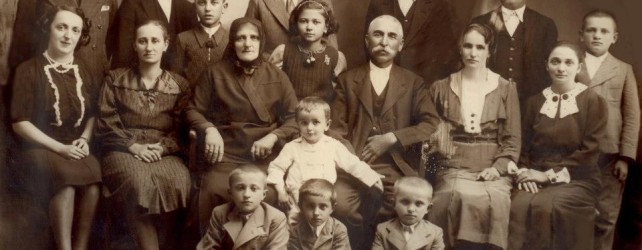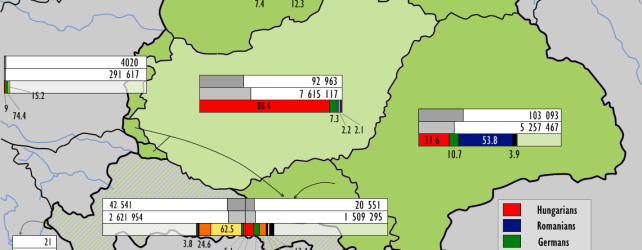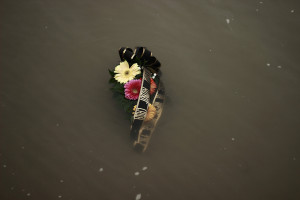 It has been 73 years since the pogrom named “Razzia” (Raid) by its perpetrators took place in the northern Serbian city of Novi Sad. In January 1942, the Hungarian occupation forces, which had been present in the region for 10 months following the invasion of that part of Serbia, committed gruesome war crimes. The Raid of January 1942 remains the most atrocious barbarity committed by Hungarian soldiers and gendarmerie in the region.
It has been 73 years since the pogrom named “Razzia” (Raid) by its perpetrators took place in the northern Serbian city of Novi Sad. In January 1942, the Hungarian occupation forces, which had been present in the region for 10 months following the invasion of that part of Serbia, committed gruesome war crimes. The Raid of January 1942 remains the most atrocious barbarity committed by Hungarian soldiers and gendarmerie in the region.
Months prior to January 1942, Hungarian authorities as well as ethnic Hungarians, who have never been either persecuted or wronged before the Second World War, spread rumors that January would be a bloody month for the civilian population, mainly Serbs. The Jews were also stigmatized as supposedly helping plan the Serbian uprising against the occupiers. Of course, none of this was true. The main idea of Miklos Horthy in Hungary was to decimate the numbers of the majority Serbian population and obliterate all the Jews, and then loot their property. Doing so would change the ethnic configuration that would be more favorable to the Hungarian minority.
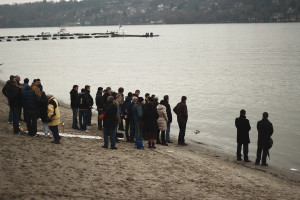 That January of 1942, the Raid was carried out against the civilians in the surrounding villages. It started on Sunday, January 4, 1942. The Hungarian state first annihilated all the intellectuals — both Serbian and Jewish — in the villages nearby Novi Sad. Then they turned against other civilians, mostly tradesmen and farmers. Entire families were murdered in cold blood and thrown under the ice of the river Tisa. The temperature those days fell to 30 below zero Celcius, so the Genocide perpetrators used mines to create a hole in the ice into which they tossed civilians, either dead or alive. This massacre lasted for two weeks until January 19, 1942. Once it was over in the countryside around the city, where the small Jewish community was annihilated and the Serbian population terribly decimated, the culprits designed carrying out the Genocide in the city itself.
That January of 1942, the Raid was carried out against the civilians in the surrounding villages. It started on Sunday, January 4, 1942. The Hungarian state first annihilated all the intellectuals — both Serbian and Jewish — in the villages nearby Novi Sad. Then they turned against other civilians, mostly tradesmen and farmers. Entire families were murdered in cold blood and thrown under the ice of the river Tisa. The temperature those days fell to 30 below zero Celcius, so the Genocide perpetrators used mines to create a hole in the ice into which they tossed civilians, either dead or alive. This massacre lasted for two weeks until January 19, 1942. Once it was over in the countryside around the city, where the small Jewish community was annihilated and the Serbian population terribly decimated, the culprits designed carrying out the Genocide in the city itself.
On January 20, 1942, the city of Novi Sad was cut off from the rest of the world. Nobody was able to leave the beleaguered settlement. The next morning, Hungarian patrols composed of gendarmes and soldiers inspected houses and personal documents. The same occurred the following day. The leading officers were dissatisfied about the results. Checking documents was not enough. They wanted a pogrom — rivers of blood on the streets. That is what they demanded happen on the third day. And so it was. The terrible January 23, 1942 was the day when a wholesale genocide was unleashed in the city.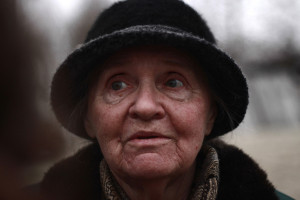
The temperature was around -30° Celcius. In order to conceal the total count of those who were destined to perish, the occupation troops broke the thick ice on Danube surface at the river beach named Strand and placed a wood plank leading to the hole. The ordinary citizens, mostly Serbs and Jews, were driven to the plank and thrown alive under the ice. The small children were tossed into the air to fall on the bayonettes and then be pushed into the freezing water. This was done in the sight of the parents because the perpetrators drew great pleasure in watching the suffering of the powerless parents.
Meanwhile, the unleashed Hungarian troops raged in all corners of the city leaving the dead in the streets, in the yards and in private homes. Later they sent trucks around the city to pick up the bodies and transport them to Strand Beach. Overnight the bodies were dumped into the river. All the documents were destroyed, bodies were disposed of and no trace of crime remained other than deserted homes and quarters in the city.
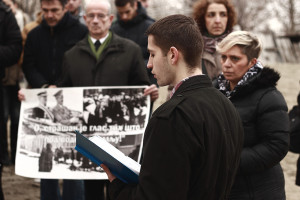 It is estimated that over 5,000 citizens were brutally murdered in the so-called Razzia. Their homes were looted, their earrings and rings were cut off of their hands and ears and pieces of bodies, hair and pools of blood remained on the snowy streets. The world has never seen such an atrocity before. If the massacre continued, the entire Novi Sad would have been annihilated. It remains unclear as to why the sudden order to stop it arrived. Some ascribe it to energetic protests by a Hungarian MP Endre Baychy Zhilinsky. Or perhaps the head of the Hungarian occupation police (which for the most part did not participate in the atrocities other than inspecting the houses for illegal weapons) protested against the “incidents” committed by unleashed Hungarian military and gendarmes? Also, Horthy’s god-son Nikola Dragoylov was murdered on the street. Could it be that he received the news about that and his stale conscience was awakened? Whatever the case might be, the pogrom was stopped. But the objective had been reached: the number of Serbs was drastically lowered since they had always been the ethnic majority in the city, unlike the ethnic Hungarian minority. Also, the Jewish community had been decimated. Besides this, the anti-Nazis of Russian, German, Hungarian and other descent were also obliterated (Novi Sad has always been an ethnically mixed city).
It is estimated that over 5,000 citizens were brutally murdered in the so-called Razzia. Their homes were looted, their earrings and rings were cut off of their hands and ears and pieces of bodies, hair and pools of blood remained on the snowy streets. The world has never seen such an atrocity before. If the massacre continued, the entire Novi Sad would have been annihilated. It remains unclear as to why the sudden order to stop it arrived. Some ascribe it to energetic protests by a Hungarian MP Endre Baychy Zhilinsky. Or perhaps the head of the Hungarian occupation police (which for the most part did not participate in the atrocities other than inspecting the houses for illegal weapons) protested against the “incidents” committed by unleashed Hungarian military and gendarmes? Also, Horthy’s god-son Nikola Dragoylov was murdered on the street. Could it be that he received the news about that and his stale conscience was awakened? Whatever the case might be, the pogrom was stopped. But the objective had been reached: the number of Serbs was drastically lowered since they had always been the ethnic majority in the city, unlike the ethnic Hungarian minority. Also, the Jewish community had been decimated. Besides this, the anti-Nazis of Russian, German, Hungarian and other descent were also obliterated (Novi Sad has always been an ethnically mixed city).
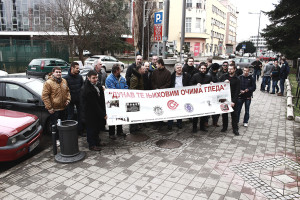 Following World War II, the facts related to Razzia 1942 have been systematically marginalized and deprived of context. For the majority of citizens this was just a tragic event, but without awareness of the causes and perpetrators. The book “Genocide Revealed” has aimed to set all those records straight and has come as the result of a long-term battle against oblivion and marginalization of the victims. For that reason, a group of citizens in Novi Sad, led by the author of the aforementioned book and students, organized The March of the Living under the motto “Danube looks at you through their eyes”.
Following World War II, the facts related to Razzia 1942 have been systematically marginalized and deprived of context. For the majority of citizens this was just a tragic event, but without awareness of the causes and perpetrators. The book “Genocide Revealed” has aimed to set all those records straight and has come as the result of a long-term battle against oblivion and marginalization of the victims. For that reason, a group of citizens in Novi Sad, led by the author of the aforementioned book and students, organized The March of the Living under the motto “Danube looks at you through their eyes”.
The marchers arrived at Strand beach on January 23, 2015, around the time when the order came for Razzia to stop. The participants said The Lord’s Prayer and the Jewish prayer Kadish, and then the president of the municipal chapter of the Holocaust Memorial Society, Aleksandar Gabona, read the poem “Danube”.
Following that, the president of the Society and author of “Genocide Revealed” called on gathered participants to pronounce a verdict against the main perpetrator Miklos Horthy, Hungarian regent — since no institution has ever proclaimed him guilty. The verdict was then pronounced by that one-of-a-kind court made up of ordinary citizens. The verdict is based on five points describing all the crimes that Horthy had committed in the region during World War II, namely:
- The Pogrom in April 1941, when Hungarian occupation troops murdered 8,500 peaceful citizens;
- 8,021 innocent lives claimed by the concentration camp for Serbs “Sarvar”;
- Countless dead Serbs and Jews who were sent to the Eastern front as “labor battalions” to aid Hitler’s war campaign against the Soviet Union;
- The death of 42,000 Serbs deported to the Croatian death camp Jasenovac;
- The January Razzia 1942.
- The total count of civilian losses in the Serbian region of Backa, which Horthy occupied in World War II, amounts to around 100,000.
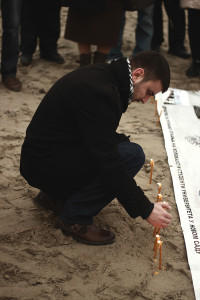 The verdict also established that the Hungarian regent was responsible for the death of over 3,000 Serbs in Novi Sad Razzia 1942, as well 1,363 Jews, 56 Hungarians, 31 Croats, 23 Germans, 22 Russians, 21 Slovaks, 8 Ruthenians, 5 Czechs, 4 Slovenians, 1 Bulgarian, 1 Greek, 1 Italian, 1 Romanian and 1 Muslim. The verdict says that it is not against the Hungarian people. Rather, it has individualized the crime and has pointed out the main perpetrator whose speedy rehabilitation has been going on unabated in Hungary. If this verdict had not been passed this year, Horthy would have most likely remained a war criminal with no sentence in the post-World War II history.
The verdict also established that the Hungarian regent was responsible for the death of over 3,000 Serbs in Novi Sad Razzia 1942, as well 1,363 Jews, 56 Hungarians, 31 Croats, 23 Germans, 22 Russians, 21 Slovaks, 8 Ruthenians, 5 Czechs, 4 Slovenians, 1 Bulgarian, 1 Greek, 1 Italian, 1 Romanian and 1 Muslim. The verdict says that it is not against the Hungarian people. Rather, it has individualized the crime and has pointed out the main perpetrator whose speedy rehabilitation has been going on unabated in Hungary. If this verdict had not been passed this year, Horthy would have most likely remained a war criminal with no sentence in the post-World War II history.
= = =
Aleksandar Veljic was born in Belgrade and graduated from Sixth Belgrade High School with a librarianship major. He has lived in London, studied at Francis King School of English and attended Ambassador College in the United States, majoring in English literature. Alexander returned to Serbia 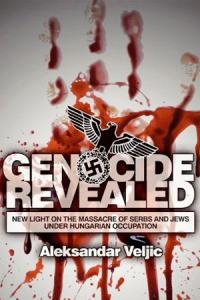 in 1996 and embarked on a close examination of the little-known World War II crimes committed by the Nazi Germans and their allies in the former occupied Yugoslavia. His painstaking research has resulted in several works on the genocide against Serbs, Jews, Roma, Slovaks, Ruthenians, Slovenes, Russian emigrants, and anti-Fascists of German, Hungarian, and other descent.
in 1996 and embarked on a close examination of the little-known World War II crimes committed by the Nazi Germans and their allies in the former occupied Yugoslavia. His painstaking research has resulted in several works on the genocide against Serbs, Jews, Roma, Slovaks, Ruthenians, Slovenes, Russian emigrants, and anti-Fascists of German, Hungarian, and other descent.
